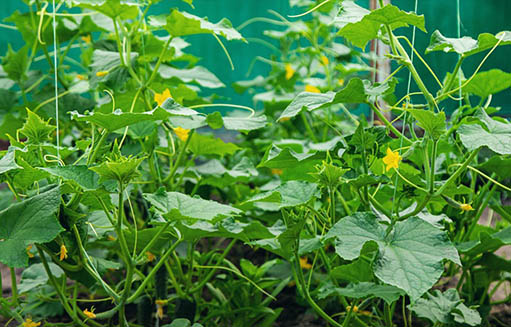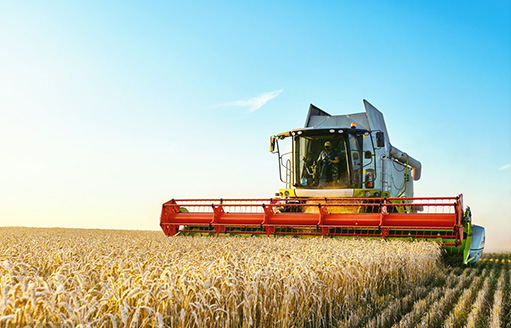(Promulgated by Order No. 87 of the State Administration for Market Regulation on January 10, 2024, effective as of July 1, 2024)
Article one In order to strengthen the standardization of agriculture and rural areas and promote the modernization of agriculture and rural areas, these Measures are formulated in accordance with the Standardization Law of the People's Republic of China.
Article two The agricultural and rural standards (including standard samples) mentioned in these Measures refer to the planting industry, forestry and grassland industry, animal husbandry and fishery and other industries, including pre-natal, in-production and post-natal services directly related to them, as well as rural facilities, environment, public services, rural governance and other fields that need to be unified technical requirements.
Article three The task of agricultural and rural standardization is to formulate and organize the implementation of agricultural and rural standards, as well as to supervise the formulation and implementation of standards.
Article four Agricultural and rural standardization is a comprehensive technical basic work to realize agricultural and rural modernization. The standardization of agriculture and rural areas shall be incorporated into the national economic and social development plans of the local people's governments at or above the county level.
Article five The standardization administrative department under The State Council has taken the lead in establishing a coordination mechanism for agricultural and rural standardization, coordinating major issues in agricultural and rural standardization, and coordinating major issues in the formulation, implementation and supervision of standards.
The standardization administrative departments of local people's governments at or above the county level are encouraged to take the lead in establishing a coordination mechanism for agricultural and rural standardization, and coordinate and promote major standardization work in agricultural and rural areas within their respective administrative areas according to the needs of the work.
Article six Agricultural and rural standards (including standard samples) can be formulated for the technical requirements that need to be unified in the following matters:
(1) agricultural and rural terms, symbols, classifications, codes (including codes), codes and abbreviations, and general guidelines, methods, management systems, evaluation rules, etc.;
(2) Varieties, specifications, quality, grade, safety, environmental protection and risk assessment of agricultural products and their primary processed products (hereinafter referred to as agricultural products) as commodities and agricultural inputs;
(3) Equipment, operations, technologies, methods, management, safety, services and environmental protection in the whole industrial chain of agricultural products, such as breeding, harvesting, processing, inspection, packaging, storage, transportation, trading and utilization;
(4) Agricultural infrastructure and guarantee conditions such as farmland, water conservancy, energy, roads, fishing ports, grassland fences, storage and circulation of agricultural products, bases for original and improved varieties of animals and plants, agricultural disaster prevention and reduction, and agricultural ecological environmental protection;
(5) rural infrastructure, public service facilities, living environments, ecological environments and other rural facilities;
(6) rural public education, medical and health care, culture and sports, social security and other rural public services;
(7) Public security prevention and control, conflict mediation, village culture, village affairs management and other rural governance;
(8) Other matters requiring uniform technical requirements.
Article seven The formulation of agricultural and rural standards shall meet the following requirements:
(1) It is conducive to promoting the effective implementation of national standardization and relevant laws, regulations and policies on agriculture and rural areas, and solving prominent common problems in agriculture and rural areas;
(2) It is conducive to improving the quality and efficiency of agricultural products, improving the capacity of rural governance, and achieving advanced technology, economic rationality, simple and applicable;
(3) It is conducive to rational use of resources, protection of the ecological environment, and improvement of economic and social benefits;
(4) According to the verification results of the whole life cycle of agricultural production, reasonably determine the standard index parameters and value range;
(5) Give full consideration to the environment of origin and regional characteristics, determine the standard technical content according to local conditions, and achieve practical feasibility;
(6) The participation of relevant new agricultural business entities, rural grassroots organizations, villagers' self-governing organizations and other stakeholders is widely absorbed.
Article eight Compulsory national standards shall be formulated for technical requirements for ensuring personal health, safety of life and property, national security and ecological and environmental security, as well as meeting the basic needs of economic and social management in rural areas during the production, processing, circulation and use of agricultural products and agricultural inputs.
Article ninth Recommended national standards may be formulated for technical requirements that meet the needs of basic general use, supporting mandatory national standards, or playing a leading role in agricultural and rural development. Technical requirements for agriculture and rural areas that are still in development and need to guide their development or have standardized value may be formulated as national standardization guiding technical documents.
For technical requirements that do not have recommended national standards and need to be unified in the agricultural and rural areas, industry standards may be formulated.
In order to meet the special technical requirements that need to be unified, such as the environment of agricultural production areas, climatic conditions, customs and habits, and rural governance, local standards can be formulated. In principle, no local standards shall be established for the quality and testing methods of agricultural inputs and general agricultural products.
Article ten Social organizations established in accordance with the law are encouraged to formulate standards for agricultural and rural organizations in accordance with market demand and the need for innovative development. For terms, classification, quantity value, symbol and other basic general aspects of the content, should comply with national standards, industry standards, local standards, agricultural and rural group standards generally do not provide for other provisions.
The technical requirements for the standards of agricultural and rural organizations shall not be lower than those stipulated in mandatory national standards.
It is prohibited to use group standards to exclude or restrict market competition, such as impeding the free circulation of agricultural products, agricultural inputs and services.
Article eleven Encourage relevant units to participate in the standardization activities of the International Organization for Standardization (ISO), the World Organization for Animal Health (WOAH), the International Plant Protection Convention (IPPC), the Codex Alimentarius Commission (CAC), the Organization for Economic Cooperation and Development (OECD), carry out standardization cooperation and exchanges with foreign countries, and participate in the formulation of international standards, Adopt international standards according to national conditions, and improve the consistency of Chinese standards and international standards. Encourage agricultural products and agricultural inputs involved in international trade, and agricultural experience technologies suitable for external dissemination and promotion to simultaneously develop standard foreign language versions.
Article twelve The standardization administrative departments of the local people's governments at or above the county level are encouraged to cooperate with the relevant administrative departments of agriculture and rural areas, comprehensively use text, pictures, audio and video and other forms, adopt information and other means, strengthen the publicity and implementation of standards, and promote the implementation and application of agricultural and rural standards according to local conditions.
Article thirteen Compulsory state standards for agriculture and rural areas must be implemented. Agricultural products, agricultural inputs, rural economic and social management and related services that fail to meet mandatory standards may not be produced, sold, imported or provided.
Article fourteen We will encourage the application of agricultural and rural standards in the formulation of agricultural industrial policies, the popularization of agricultural technology, the supervision of agricultural product quality and safety, and rural construction.
Local people's governments at or above the county level are encouraged to build regional agricultural and rural standardization service platforms, popularize standardization knowledge, interpret agricultural and rural standards, promote standardization experience, and support agricultural standardized production and rural standardization construction and governance.
Article fifteen Local people's governments at or above the county level shall support the pilot demonstration of agricultural and rural standardization, disseminate standardization concepts, verify the effectiveness of standards, explore standardization experience, establish standardization benchmarks, and promote standardization construction, production, operation, management and services in agricultural and rural areas.
The standardization administrative departments of local people's governments at or above the county level and the relevant administrative departments of agriculture and rural areas are encouraged to jointly carry out supervision, evaluation and acceptance of pilot demonstration projects.
Article sixteen Relevant units and individuals are encouraged to give feedback on the implementation of agricultural and rural standards to the standardization administrative departments of the people's governments at or above the county level and the relevant administrative departments of agriculture and rural areas. According to the feedback, the relevant departments shall organize the review of the relevant standards formulated by them, make a conclusion that the standards will continue to be valid, revised or abolished, and improve the advanced nature and applicability of agricultural and rural standards.
Article seventeen Relevant units are encouraged to integrate agricultural and rural standards with measurement, certification and accreditation, inspection and testing, intellectual property rights, quality management or brand cultivation.
Article eighteen Encourage standardization service institutions to carry out standardization research, training, consultation or evaluation in the field of agriculture and rural areas, and serve the formulation, implementation and application of agricultural and rural standards.
Article nineteen The standardization administrative departments and relevant administrative departments of the people's governments at or above the county level shall, in accordance with their statutory duties, guide and supervise the formulation of agricultural and rural standards and supervise and inspect the implementation of agricultural and rural standards.
Article twenty Encourage people's governments at or above the county level to establish an incentive mechanism for all types of talents to participate in agricultural and rural standardization work, include agricultural and rural standards in the scope of scientific and technological achievements awards, and support projects that meet the provisions of agricultural and rural standards to apply for scientific and technological awards.
Article twenty-one These Measures shall come into force on July 1, 2024. The Measures for the Administration of Agricultural Standardization promulgated by Order No. 19 of the former State Bureau of Technical Supervision on February 26, 1991 shall be repealed simultaneously.







